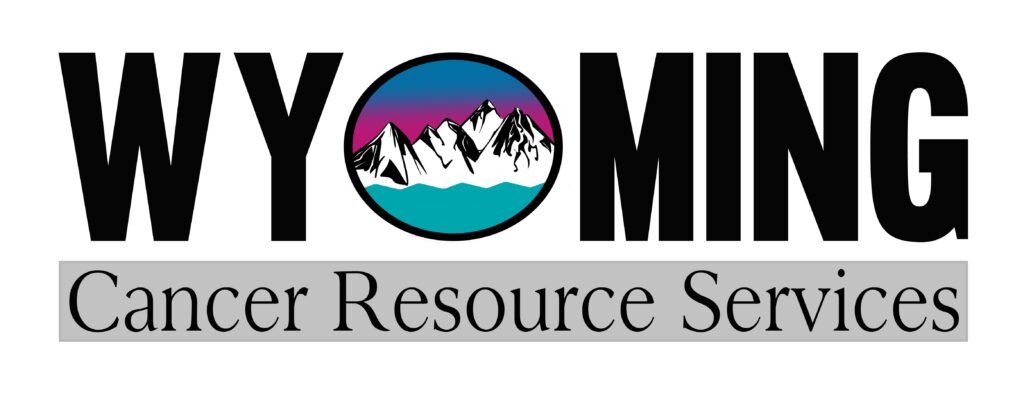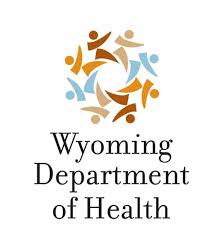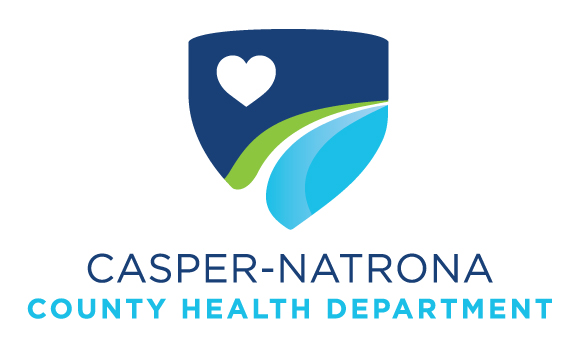Cancer Prevention
The Casper-Natrona County Health Department is the coordinator of Wyoming Cancer Resource Services for Region II (Carbon, Converse, Natrona, and Niobrara Counties)
The program includes:
- Education and awareness about cancer prevention programs and services as well as related cancer risk factors.
- Promotion of early detection of cancer at intervals recommended by national screening guidelines
- Referral of eligible participants to state-funded cancer screening programs
- Patient navigation for Wyoming residents needing local, regional, state and national cancer information and resources.
- Filling service gaps utilizing resources within the communities in the region.
Cancer Prevention Programs
The Casper-Natrona County Health Department provides patient navigation for people needing cancer screening, treatment, or survivorship assistance. Travel vouchers may be available for patients needing care outside of Natrona County. Vouchers are awarded based on client’s income and on a first-come-first-serve basis. Contact us at (307) 235-9340 if you are in need of patient navigation or travel assistance.
The Casper-Natrona County Health Department is offering patient navigation and case management for cancer survivors who wish to continue to improve their health and wellness after their cancer treatment. For more information, call us at (307) 235-9340.
For information about FREE cancer screening programs that include screening for colorectal cancer (colonoscopy, FIIT kits), breast cancer (mammography, other services), and cervical cancer (Pap screening and other follow-up services), please CLICK HERE: health.wyo.gov/cancer
Please contact us to help you enrolll in the FREE cancer screening programs by calling the Casper-Natrona County Health Department at (307) 235-9340.
Other information about Wyoming Cancer Resources can be found here: health.wyo.gov/public health/cancer-andchronic-disease-prevention-unit/cancer/wcrs
The Casper-Natrona County Health Department is partnering with City of Casper and other agenices to provide bulk sunscreen dispenser for the public in locations where sun exposure is likely (i.e., pools, public gathering locations, etc). If you are interested in using or checking out a free sunscreen dispenser for your event, visit http://health.wyo.gov/publichealth/cancer-and-chronic-disease-prevention-unit/cancer/sunsafety/ or contact us at 307-235-9340.
Regardless of whether you have other risk factors, such as family history, reducing your exposure to ultraviolet (UV) rays can help keep your skin healthy and lower your chances of getting skin cancer in the future. Most people get at least some UV exposure from the sun when they spend time outdoors. Making sun protection an everyday habit will help you to enjoy the outdoors safely, avoid getting a sunburn, and lower your skin cancer risk.
- Stay in the shade, especially during midday hours.
- Wear clothing that covers your arms and legs.
- Wear a hat with a wide brim to shade your face, head, ears, and neck.
- Wear sunglasses that wrap around and block both UVA and UVB rays.
- Use sunscreen with a sun protection factor (SPF) of 15 or higher, and both UVA and UVB (broad spectrum) protection.
Additionally, avoiding UV exposure in tanning beds, performing regular skin checks, and consulting your physician whenever you have a concern can reduce your risk of developing skin cancer.
What is radon?
Radon is a radioactive gas released from the normal decay of the elements uranium, thorium, and radium in rocks and soil. It is an invisible, odorless, tasteless gas that seeps up through the ground and diffuses into the air. In a few areas, depending on local geology, radon dissolves into ground water and can be released into the air when the water is used. Radon gas usually exists at very low levels outdoors. However, in areas without adequate ventilation, such as underground mines, radon can accumulate to levels that substantially increase the risk of lung cancer. Radon is present in nearly all air. Everyone breathes in radon every day, usually at very low levels. However, people who inhale high levels of radon are at an increased risk of developing lung cancer.
How can people know if they have an elevated level of radon in their homes?
Testing is the only way to know if a person’s home has elevated radon levels. Indoor radon levels are affected by the soil composition under and around the house, and the ease with which radon enters the house. Homes that are next door to each other can have different indoor radon levels, making a neighbor’s test result a poor predictor of radon risk. In addition, rain or snow, barometric pressure, and other influences can cause radon levels to vary from month to month or day to day, which is why both short- and long-term tests are available.
Short-term detectors measure radon levels for 2 days to 90 days, depending on the device. Long-term tests determine the average concentration for more than 90 days. Because radon levels can vary from day to day and month to month, a long-term test is a better indicator of the average radon level. Both tests are relatively easy to use and inexpensive. A state or local radon official can explain the differences between testing devices and recommend the most appropriate test for a person’s needs and conditions.
The U.S. Environmental Protection Agency (EPA) recommends taking action to reduce radon in homes that have a radon level at or above 4 picocuries per liter (pCi/L) of air. About 1 in 15 U.S. homes is estimated to have radon levels at or above this EPA action level. Scientists estimate that lung cancer deaths could be reduced by 2 to 4 percent, or about 5,000 deaths, by lowering radon levels in homes exceeding the EPA’s action level.
The EPA has more information about residential radon exposure and what people can do about it in the Consumer’s Guide to Radon Reduction, click here to view https://www.epa.gov/sites/default/files/2016-12/documents/2016_consumers_guide_to_radon_reduction.pdf
Test Your Home
To receive a FREE radon test kit (1 per household) for your home, visit https://states.aelabs.com/#/wy or contact us at 307-577-9340.
Cervical Cancer Prevention & HPV Vaccine
Human papillomavirus (HPV) is a very common virus that can lead to cancer. Nearly one in four people are currently infected with HPV. Over 30,000 people in the United States each year are affected by cancer caused by HPV infection.
HPV vaccination provides safe, effective, and lasting protection against the HPV infections that most commonly cause cancer.
The Casper-Natrona County Health Department offers HPV vaccination. For more information, please seek our Immunization Page.
HPV vaccination is recommended for preteen girls and boys at age 11 or 12 years. All preteens need HPV vaccination so they can be protected from HPV infections that cause cancer.
- Teens and young adults who didn’t start or finish the HPV vaccine series also need HPV vaccination.
- Teens and young women can get HPV vaccine until they are 27 years old and young men should get HPV vaccine until they are 22 years old.
- Teens and young men who have sex with other men or who have weakened immune systems should get HPV vaccine until they are 27.
- Transgender individuals should also get HPV vaccine until they are 27.
CDC recommends that 11- to 12-year-olds receive two doses of HPV vaccine at least six months apart to protect against cancers caused by human papillomavirus (HPV) infections.
- The first dose is routinely recommended at 11-12 years old.
- The second dose of the vaccine should be administered 6 to 12 months after the first dose.
- Vaccination with the two-dose series can be started at age 9 and through age 14.
Teens and young adults who start the series later, at ages 15 through 26 years, need three doses of HPV vaccine to protect against cancer-causing HPV infection.
- Adolescents aged 9 through 14 years who have already received two doses of HPV vaccine less than 5 months apart, will require a third dose.
- Three doses are recommended for people with weakened immune systems aged 9-26 years.
Tell your doctor about any severe allergies. Some people should not get some HPV vaccines, including:
- People who have ever had a life-threatening allergic reaction to any ingredient of an HPV vaccine, or to a previous dose of HPV vaccine.
- People who have an allergy to yeast (Gardasil and Gardasil 9).
HPV vaccines are safe for children who are mildly ill – for example, with a low-grade fever of less than 101 degrees, a cold, runny nose, or cough. People with a moderate or severe illness should wait until they are better.
Two HPV vaccines have been licensed by the U.S. Food and Drug Administration (FDA).
- Gardasil (Merck) is a quadrivalent HPV vaccine (4vHPV) that protects against HPV types 6, 11, 16, and 18.
- Gardasil-9 (Merck) is a nine-valent HPV vaccine (9vHPV) that protects against HPV types 6, 11, 16, 18, 31, 45, 52, and 58.
Both HPV vaccines protect against the two HPV types, 16 and 18, that cause most HPV cancers.
- Since the vaccine was first recommended in 2006, there has been a significant reduction in HPV infections.
- Research has also shown that fewer teens and young adults are getting genital warts.
- In other countries such as Australia where there is higher HPV vaccination coverage, HPV vaccine has also reduced the number of cases of precancers of the cervix in young women in that country.
- Also, genital warts have decreased dramatically in young adults in Australia since the HPV vaccine was introduced.
- 10 years of data show that HPV vaccination provides long-lasting protection.
- There is no evidence to suggest that HPV vaccine loses the ability to provide protection over time.
Vaccines, like any medicine, can have side effects. Many people who get HPV vaccine have no side effects at all. Some people report having very mild side effects, like a sore arm from the shot.
The most common side effects of HPV vaccine are usually mild, and include:
- Pain, redness, or swelling in the arm where the shot was given
- Fever
- Headache or feeling tired
- Nausea
- Muscle or joint pain
Brief fainting spells and related symptoms (such as jerking movements) can happen after any medical procedure, including vaccination. Sitting or lying down when getting a shot and staying in that position for about 15 minutes after a vaccination can help prevent fainting and injuries caused by falls.
On very rare occasions, severe (anaphylactic) allergic reactions may occur after vaccination. People with severe allergies to any component of a vaccine should not receive that vaccine.
For more information about the HPV vaccine, please visit this website: https://www.cdc.gov/vaccines/vpd/hpv/public/index.htm



